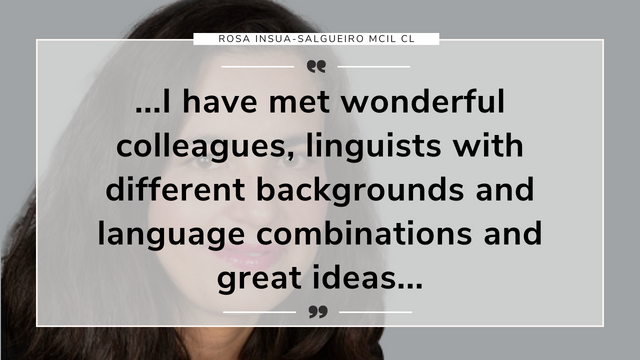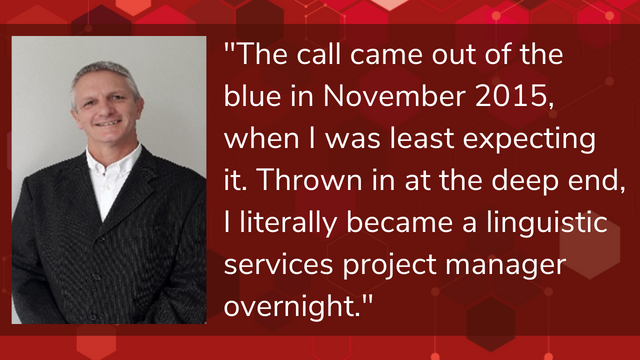-
QUALIFICATIONS
- For Linguists Worldwide
- For UK Public Services
- Preparation
- Policies & Regulation
-
MEMBERSHIP
- Join CIOL
- Membership grades
- NEW for Language Lovers
- Chartered Linguist
- Already a member?
- Professional conduct
- Business & Corporate Partners
-
ASSESSMENTS
- For Second Language Speakers
- English as a Second Language
-
EVENTS & TRAINING
- CPD, Webinars & Training
- CIOL Conference Season 2025
- Events & Networks
- CIOL Mentoring
-
NEWS & VOICES
- News & Voices
- CIOL eNews
- CIOL Awards
- The Linguist
- Jobs & Ads
-
RESOURCES
- For Translators & Interpreters
- For Universities & Students
- Standards & Norms
- CIOL & AI
- All Party Parliamentary Group
- In the UK
- UK Public Services
- Find-a-Linguist
A day in the life of an interpreter for the prosecution
By Helle Gulowsen
It is said that the key to survival is not strength, but the ability to accurately perceive your environment and successfully adapt to it. This is very good news for public service interpreters. Navigating the labyrinths of our courts, not knowing what your working day will bring, requires an adaptability and agility of mind that goes far beyond pure linguistic skills. Being the calm, confident, and seemingly well-informed interpreter the client needs and deserves is not always easy. You are expected to blend into the background, yet be the essential communication link. You must be confident and take charge of the situation, yet never overstep the mark. You must accept little to no information, yet be an expert on every detail.
My own court debut many years ago was a daunting experience. Although I had the skill-level required for the assignment, I was very much the novice and knew little about the case – or indeed for whom I was supposed to interpret. Afraid of exposing my inexperience and lack of knowledge, I asked very few questions. There was no briefing. In fact, my presence was not acknowledged until I was called to the witness stand – something that I would never have accepted today.
The assignment went surprisingly well all things considered, but it was not a great experience. By placing higher expectations on the agency through which I was booked, and with a different approach on my part, a great deal of unnecessary stress could have been avoided.
Today, I would never take on an assignment without some basic, but crucial, practical details – such as the nature of the case, who the client is, and where to go. I am also more aware of who to ask, when to be persistent, what not to accept, and how to deal with the various people and entities within the criminal justice system. There are of course many aspects of court interpreting that I have yet to experience, and there are still times when my confidence wavers and I find myself slightly apologetic for my lack of mind-reading skills.
A court assignment will always carry an element of uncertainty, and confidentiality rules limit the amount of information available in advance, but perhaps sharing my experiences and mistakes over the years can help make those early days a little bit easier for interpreters starting out in the profession.
Helle Gulowsen is a Fellow of the Chartered Institute of Linguists (FCIL) and a Chartered Linguist. She will be presenting at the CIOL Online Conference in March 2023.
Book your place to hear Helle's presentation on working as a court interpreter.

Filter by category
More
The Chartered Institute of Linguists (CIOL), Incorporated by Royal Charter, Registered in England and Wales Number RC 000808 and the IoL Educational Trust (IoLET), trading as CIOL Qualifications, Company limited by Guarantee, Registered in England and Wales Number 04297497 and Registered Charity Number 1090263. CIOL is a not-for-profit organisation.








